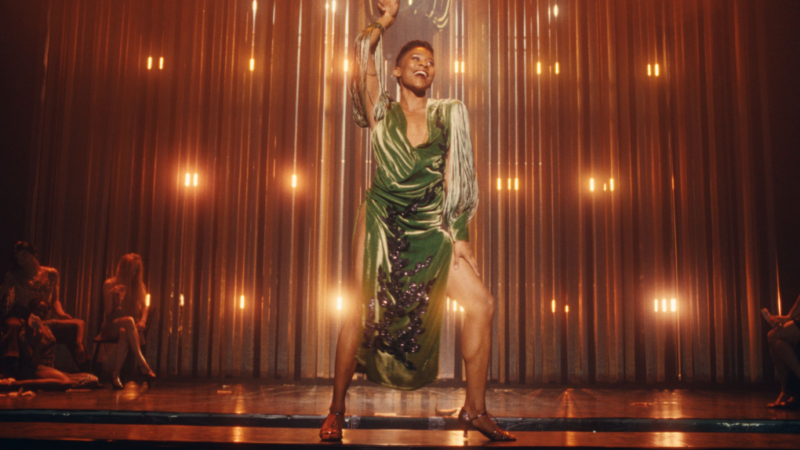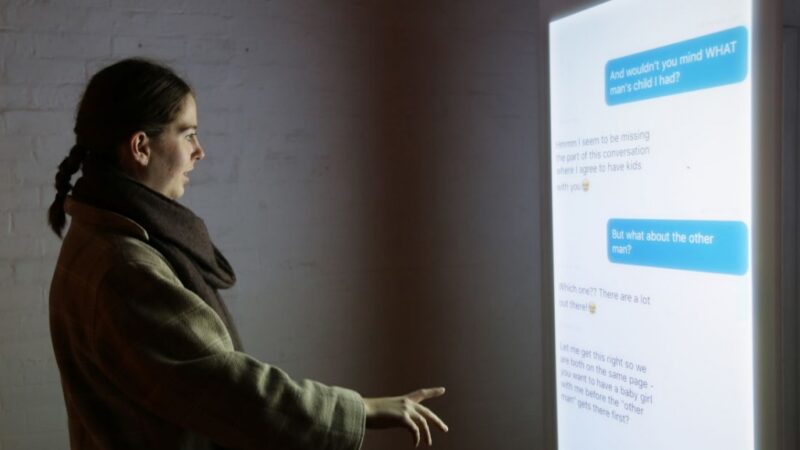The importance of storytelling
Effective storytelling is compelling and memorable. Therefore, tapping into your storytelling skills can be extremely valuable in creating promotional content and increasing engagement online.
Below, Rob Lindsay, The Space’s Head of Programmes, and Sarah Fortescue, a Space associate, share their insights and advice.
Digital marketing assets need a story
We are all aware of the importance of storytelling in digital promotion on digital platforms in helping develop connections with audiences
In particular, social media is where people go to share their personal stories, and what social media users are looking for.
Sarah: “Remember that you are in your audience’s social space. Effective digital promotion is about making something that is relatable to them. Making it relatable, but also explaining, in a very short amount of time, why something is going to be worth their time. And the simplest way to do that is by telling a story: think about how it’s going to impact them, how it’s going to make their life different, what are they going to get from it.”
Rob: “Your audiences are quite sceptical about advertisements; they are aware that approx. 1 in 3 posts are going to be a sponsored ad, a boosted ad, or suggested content. You need to hone those storytelling skills to make your content feel different.”
Rob and Sarah’s headlines for effective promotional content online:
1. Make a meaningful first impression
Sarah describes good promotional content as a “snapshot of what people are going to see and what they are going to get out of it”.
She says it is important that marketing assets are a good introduction to your performance or exhibition, and that it works – and makes sense – for people seeing your work for the first time.
Therefore, it is important not to serialise promotional content, as Rob describes:
“One of the most common mistakes I see is organisations that put videos out and they’ve not explained things that they explained in their last video. They anticipate that people are going to sit and watch each one. This serialisation doesn’t work. Everything needs to work as a good first impression, as a good ‘calling card’.”
2. Make some publishing decisions up front
Rob explains that it is “important to have the conversation about which platform to put your content on and make those decisions before you make the materials. If you’ve already made something and you’re trying to work out where to put it, it’s too late. The best platform to put your content is the platform you made the content for. Each platform has its own culture, expectation, and visual grammar. You need to take that into account when you make something.”
3. Don’t waste any time
“Online attention spans are frustratingly small,” Sarah says. Get to the point immediately and keep it succinct and concise. For trailers, it is important to get your audience hooked within the first 3 seconds, or internet users will continue scrolling.
4. Show off but don’t reveal everything
Your promotional content needs to sell your work, so don’t be afraid to show off. Finding a middle ground between keeping too much a mystery and spoiling everything is crucial. Highlights are a good example of showing enough to create engagement, but not enough to create spoilers.
5. Make your marketing content authentic to what you are trying to promote
Sarah explains: “If it’s a comedy, show a joke, show the audience laughing. Show what the audience is going to get out of it … If it’s a dramatic piece, you can tell that through the music, underscoring it, and the pace of the cuts in the trailer.
“Always use texts or quotes to highlight what audiences are going to get out of it.”
You’ve found your story idea, now what do you do?
It is important to know who your potential online audience might be in order to direct your marketing efforts.
Sarah suggests asking your team these questions: “What are the themes of the show? Who might be interested in those themes?” Reflecting on the content of your performance or exhibition is the first step in finding your target audience. Think about where you might find new audiences who are interested in those themes or topics and where you might find them. For example, if you are marketing a show about the 1966 World Cup, football fans will be among your target audience and may not be part of your venue’s regular audience so you will need to seek them out online in their own digital spaces. If you don’t know where those new, target groups are, ask around until you find out.
Rob also warns that it’s important to be selective about what channels you use.
“A platform is a community, and any platform that you start putting things onto means you’re essentially establishing a channel there,” Rob says. “Consider what’s going to happen if you’re wildly successful. If you put something out there and people love your content, they’re going to book your show, and say ‘that’s great what else have you got’. They’re going to keep going back to those channels.
Think seriously about which ones you can sustain, which one you can continue to go for. Alternatively, if you don’t think you can sustain a channel beyond one or two stories, try collaborating with someone who is already managing a channel, and working with them to create content for their channel that tells your story.”
How useful was this resource?




